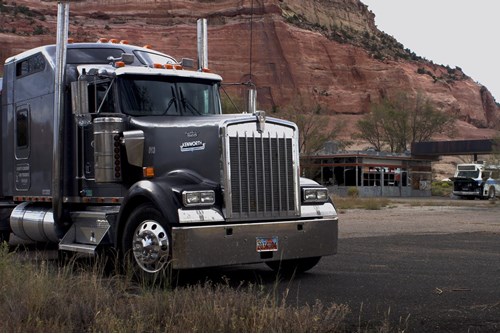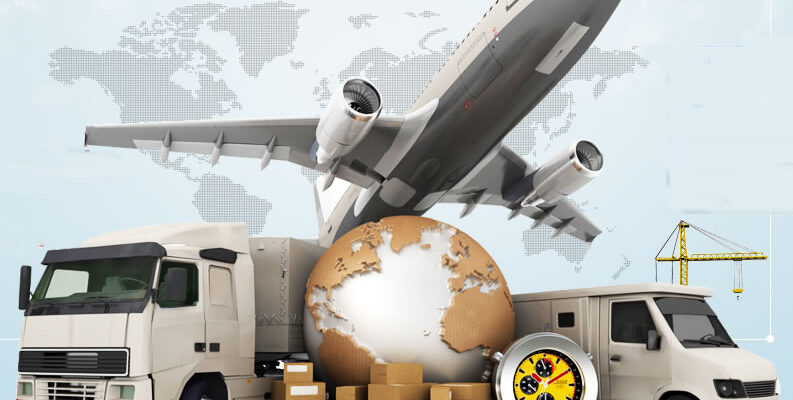
Goods in Transit Insurance Malaysia
What is Goods in Transit Insurance? The insurance Malaysian policy, where your goods are covered against loss or damage while in transit-over land, sea, or air-from one geographical location to another. Goods in Transit Insurance plays an important role in any business operation that involves shipment and logistics or trading since it covers most of the risks that occur during transportation.
Salient Features of Goods in Transit Insurance in Malaysia:
1. Loss and Damage: Goods in Transit Malaysian Insurance cover losses due to a variety of perils that may befall goods while transportation, including theft, accidents, fire, and other natural calamities.
2. Transport Modes Covered: In general, this insurance covers all forms of cargo moving by road, sea, air, or rail. The policy will be tailored to cover single or multiple modes of transit as required by the business.
3. Tailor-made Solutions: The policies can be tailored according to the type of goods to be moved, the distance of transportation, and the company requirements. Be it raw materials, finished goods, or even 
4. Single Trip or Annual Coverage: Companies can buy a one-time policy to cover a single shipment or an annual coverage plan in cases of continuous or regular Malaysian shipments.
5. Extensions and Additional Coverage: Companies in Malaysia can also consider strike extension, riots, and breakage of Malaysian transport equipment on their policy.
Why is Goods in Transit Insurance Important in Malaysia?
1. Protection Against Financial Loss: The policy can help a Malaysian business avoid its risk of financial loss in case the merchandise is damaged or lost while in Malaysian transport. This ensures compensation of the value of the lost or damaged goods that assists a business to continue its operations.
2. Compliance and Contractual Requirements: Most Malaysian businesses are compelled by their customers or partners to hold Goods in Transit Insurance for adequate protection of the goods in shipment. It is particularly important for Malaysian exporters and importers involved with international shipments.
3. Malaysian Goods in Transit Insurance: The country's thriving logistics and trading sector rely on safe and efficient movements of goods. Goods in Transit Insurance helps mitigate financial risks involved in transporting goods across or within the borders.
Some of the popular Goods in Transit Insurance providers in Malaysia:
1. Allianz Malaysia: It offers all-inclusive transit insurance for any mode of transport at all levels, while its policy can be tailored to meet the needs of either single or multiple shipments.
2. AXA Affin General Insurance: The company offers coverage for specialized trading, shipping, and logistics enterprises, albeit optional, which one could add to suit particular transport needs.
3. Berjaya Sompo Insurance: This firm focuses more on Marine Cargo and Goods in Transit Insurance. It ensures both inland and international shipment risks, with a policy tenure that allows flexibility.
4. Zurich Malaysia: Malaysian Offers Goods in Transit cover tailored for importers, Malaysian exporters, and logistics Malaysian companies to remain protected against the risks of transportation.
Goods in Transit Insurance, therefore, becomes highly important for a business entity involved in transportation activities in Malaysia. It offers assurance of peace of mind and protection against a wide array of financial risks that are incurred during the shipment of goods either locally or internationally.
The businesses can protect their assets when they are on transit and lessen the possibility of occurrences of unforeseen losses with different options available from several competitive providers.
Benefits of Goods in Transit Insurance in Malaysia:
Compensation for Loss or damage to Goods: Goods in Transit Insurance insures the business house against the goods lost or damaged during transit.

1. This would then protect them from considerable financial loss due to accidents or theft and natural calamities.
2.Choice of Transport Mode: In general, it covers goods moved by road, sea, air, or rail. This provides flexibility to a Malaysian business in covering its products through different modes of transport.
3. Malaysian Business Needs: Covering policies according to the needs of the firm, where a firm can select coverage depending on the nature of goods moved, distance, and amount of liability involved. This is very helpful in companies dealing in specialized goods that require controlled environments, like perishable goods or high-value goods.
4. Business Contractual Agreements: Most businesses, by nature of operations, like logistic,Malaysian import and export, and trading Malaysian businesses, have contractual obligations that obligate them to take up Goods in Transit Insurance. Having such insurance will enable such a business to comply with such legal and contractual obligations.
5. Malaysian Business Disruption is Minimized: Malaysian Goods in transit insurance ensures a business restarts with minimal disruption, in case some loss or any damage was inflicted upon the products under transition. This is very vital and may serve well for supply chain continuity.
6. Unforeseen Risks: Goods in Transit Insurance protects one from unforeseen risks such as strikes, riots, or sudden delays in transportation that may lead to financial losses or even a dent on the business reputation.
7. Peace of mind for the business owner, knowing well that in-transit goods are insured, freely operate and function on other aspects of their dealing.
8. Malaysian Cost-Effective Risk Management: Goods in Transit Malaysian Insurance is generally much more reasonable than the potential Malaysian financial losses, should the goods be damaged or lost. It's a cost-effective way to mitigate risk, especially for companies involved in high-volume Malaysian shipments.
9. Malaysian Insurance for Domestic and International Shipments: Thus, the insurance could also be for inland and international transits-a very important tool for every business involved in cross-border trade and worldwide supply chains.
10 Creditworthiness Improved and Confidence of Malaysian Customers: Any Malaysian business enterprise with Goods in Transit Insurance evidences its commitments for the safety of goods and discharge of obligations, thereby increasing the scope for earning better credibility with clients, partners, and suppliers.
In short, Goods in Transit Insurance is the most important securities for any business in Malaysia, which ensure that
Even though Goods in Transit Insurance offers a lot of advantages, its disadvantages as probable for businesses in Malaysia include the following:
1. Malaysian Premium Costs:
• Investment of Money in Small-scale Malaysian Businesses: The Malaysian cost of premiums can be quite expensive for smaller-scale businesses, particularly those with low margins or infrequent needs to send Malaysian shipment.
Higher premium paid for specialized goods: Malaysian Business that transports goods of a high value or specialize in items like perishables or fragile goods, are likely to pay a higher premium due to the high perceived risk of such goods.
2. Lack of protection against some risks:
Exclusions and Limitations: A standard Goods in Transit Insurance policy does not contemplate all risks. Natural disasters, war, or damage caused by improper packaging could be excluded under certain policies. Their full protection may involve buying additional riders or extensions by the concerned business enterprise.
• Gaps in coverage: In the event a policy is taken out to cover, for example, Malaysian goods only when they are moved between two Malaysian warehouses, the goods may be exposed at other stages of the process that are not covered by the insurance.
3. Claims and Delays:
• Time-consuming claims process: Claims submitted on account of loss or damage of cargo are time-consuming in nature and require voluminous documentation. The sanctioning process may take weeks or even months, thereby disrupting cash flow from the business cycle.
• Risk of claim refusal: The insurance Malaysian company may refuse to entertain claims in case of failure by the Malaysian business to comply with all the requirements of the policy, such as approved modes of transportation, or failure to provide sufficient proof of damage.
.jpeg)
4. Overlapping Coverage with Other Malaysian Policies:
• Duplication of Insurance Cover: With the existence of comprehensive business insurance that covers goods in transit, this means that many companies may be covered already. Thus, going for a Goods in Transit Insurance policy would result in duplicated coverage and extra costs.
5. Premium Amendments:
Variable Premium Costs: The premiums depend upon the nature of goods, route of transit, and mode of transport. This may lead to an uncertainty in costs for the business over some period, given the fact that they are likely to make shipments to various places quite frequently .
6. Limited Compensation for Delays:
• No Compensation for Malaysian Delivery Delays: Most Goods in Transit Insurance policies do not compensate for losses incurred as a result of shipment delays unless it leads to actual damage or loss of the goods. Therefore, businesses that rely on time-sensitive deliveries may not be compensated for any indirect financial losses resulting from late shipments.
7. Complicated Malaysian Policy Terms:
• Complicated Fine Prints: The terms and conditions of Goods in Transit Insurance Malaysian policies are quite complicated, and business owners may misinterpret certain things and others. These wrong interpretations lead to unexpected claim denials.
8. Dependence on Third-Party Logistics:
• Factors Beyond Control: Even in the context of Goods in Transit Insurance, businesses still depend on third-party logistics providers. If there is negligent handling by the logistics provider, the insured business will continue to struggle in recovering complete compensation, especially in case the loss or damage was avoidable.
9. Enhanced Administrative Burden:
• Malaysian Documentation Requirements: Goods in Transit insurance policies often place some onus on an organization in terms of keeping records of the shipment dispatched, which generally include invoices, packaging lists, and proof of delivery. All this tends to add an administrative workload that may be high for a small business.
Generally speaking, Goods in Transit Insurance in Malaysia covers the risks associated with the goods in transit from one place to another. While the actual details may vary from one insurance provider to another, the following is a broad view of the typical Goods in Transit Insurance policy that an insurer may have in Malaysia:
1. Coverage Provided:
• Transit Loss or Damage: Basically, the policy protects the insured goods against loss or damage during transport by road, air, sea, or rail.
• All-Risk Coverage: Some policies offer "All Risks" coverage, which means that the goods are covered for a wide variety of unforeseen incidents like theft, accidents, and natural calamities unless excluded specifically.
• Named Perils Coverage: This less comprehensive form of coverage covers the goods against specifically named perils in the policy, such as fire, explosion, theft, and accident to carrying vehicles.
• Goods in Storage: Some policies also cover goods temporarily stored in warehouses or other transit points during transportation.
2. Scope of Cover:
• Malaysian Domestic and International Transit: Domestic shipments of goods within Malaysia and international shipments across the border would fall under the ambit of a policy normally. The terms dictate applicability.
Variety of Transport Modes: The insurance covers goods moved by various modes of transportation, including road transport, which includes lorries, trucks, vans, air freight, sea freight, and rail transport. Partial or Total Loss: Depending on the course of events and specific policy conditions, it offers partial or total loss of goods.
3. Key Features of the Policy:
• Single Trip vs. Annual Policy: The Malaysian policies may be tailored to cover either a one-time shipment or an annual policy that will cover several Malaysian shipments during the Malaysian policy year.
• Third-Party Liability: Some policies may extend to include legal liabilities arising from damage or loss of third-party-owned goods during transit.
• Malaysian Coverage Limits that Can be Customized: Malaysian Businesses can set Malaysian coverage limits based on the shipment value to ensure that the higher value shipments have better coverage.
4. Exclusions and Limitations:
While Goods in Transit Insurance policies in Malaysia cover a broad field, there are common exclusions that businesses should know about:
• Inherent Vice: Loss or damage because of natural characteristics of the subject-matter goods; for instance, spoilage, decay.
• Improper Packaging: The insurer will not pay the claim if goods get damaged because of insufficient or improper packaging.
• War and Terrorism: Most policies exclude damage or loss caused by acts of war, terrorism, or civil unrest. Businesses can buy separate extensions that cover these risks.
• Delay: Claims of financial losses arising solely due to delay in Malaysian delivery are not usually covered unless delay results in actual damage to the goods.
• Wear and Tear: Goods that undergo general wear and tear or are depreciated are generally excluded.
5. Optional Add-Ons and Extensions:
Some insurers will allow the addition of extra coverage for particular risks to a business; these include:
• Strike, Riot, and Civil Commotion (SRCC): Cover against loss and damage from strikes, riots, and civil commotion.
• Terrorism Coverage: For shipments that may pass through areas in political turmoil.
• Breakdown of Transport: Covers losses arising from the failure of the motor vehicle or equipment transporting the cargo.
• Malaysian Natural Disasters Extension: Covers against risks like flooding, earthquakes, or even tsunamis.
6. Malaysian Policy Premiums:
The premium payable on Goods in Transit Insurance policy is prompted by various determinants, including but not limited to:
• Value of Goods: Goods of a higher value attract higher Malaysian premiums.
• Commodity Type: High-value items or those that are fragile/perishable, or of a hazardous nature, can warrant higher premiums since the chance of their being damaged is significantly high. Examples include Malaysian electronics and luxury items.
• fax,vv Mode of Transportation: Sea and air transport have different risk profiles compared to road or rail Malaysian transportation.
• Malaysian Shipping Route/Destination: The route/destination may introduce an element of risk that may work to alter the premium. For example, shipping to a politically unstable country or a geographical region considered far-flung can translate to increased premiums.
• History of Claims: Those Malaysian enterprises experiencing a high rate of claiming in the past will also have to pay higher premiums.
Posted on 2024/10/14 07:26 PM
